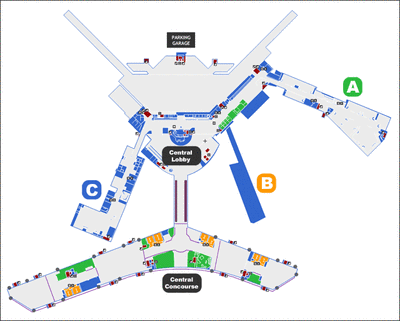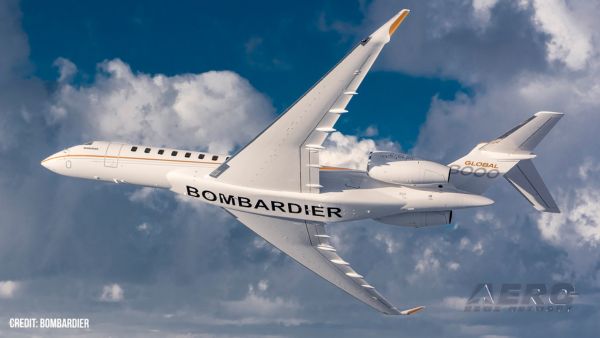Convenience Of "Going Small" Makes Up For Lack Of Perks For
Many
When it comes to improving your odds of finding a parking space,
getting through security as quickly as possible, or making a
connecting flight with time to spare... smaller airports offer
significant advantages over their larger counterparts, according to
a recent JD Power and Associates study.

If that sounds a little like concluding the sky is blue, well,
you're right... but the number of travelers who prefer small
airports for the reasons above cannot be ignored, according to USA
Today. For many people, the increased convenience more than offsets
smaller airports' relative lack of services, like upscale
restaurants and shops.
"Small airports may not have all the services and amenities
travelers desire, but they are convenient," says JD Powers' Jim
Gaz.
And in an age when the words "commercial airport" have become
synonymous with "hassle," or "root canal" in the minds of many
travelers... convenience wins the day. That's evident in the latest
JD Powers survey of major US airports, which puts Houston's Hobby
Airport at the very top of the list in customer satisfaction, for
the second year in a row.
In all, five smaller airports -- defined as handling fewer than
10 million passengers in 2006 -- each scored higher than the
best-scoring mega-airport, Dallas/Fort Worth International. Like
DFW, four of those smaller airports -- Hobby, Dallas Love Field,
San Antonio International, and El Paso International -- are located
in Texas; the fifth small field earning kudos was Connecticut's
Bradley International.
But amenities remain important to travelers. Hobby's high
numbers have at least a little to do with improvements made to the
terminal in 2004 (shown above), according to Airport Manager Mary
Case. New shops and restaurants followed, along with "soothing"
music in the terminal, and even an outdoor fitness trail.
"Hobby is very easy to navigate and very compact for a traveler
to make connections," says Crawford. "The décor is fairly
modern, and it has Wi-Fi capabilities and more than decent dining
and retail choices."
Curiously, the lowest-scoring small airport in the JD Power
study -- Austin-Bergstrom International, once again in Texas --
earned the highest marks for customer service in a survey conducted
earlier this year by Airports Council International.
ACI noted AUS "has the best ambience of any airport in North
America," and scored well in baggage claim, according to airport
spokesman Jim Halbrook; the JD Power survey gives Austin poor marks
in speed of delivering checked luggage.
As evidenced by Austin's conflicting satisfaction reports,
travelers have different opinions on what's important in an
airport, large or small.
"By far, my favorite two airports in the country are Ohio's
Akron-Canton and California's Long Beach," says traveler Sammy
Tawil. "I can get out of the plane, in my rental car and on the
highway in 10 minutes or less. It would take up to an hour to do
that at the big airports nearby in Cleveland and Los Angeles."
Long Beach also scored low on the JD Power survey.
Other travelers, such as Jim Mallory, favor large airports due
to the added room. "Give me a big city airport any day," he says.
"Chances are, the corridors will be wide, and there will be plenty
of restrooms close by."
 Aero-FAQ: Dave Juwel's Aviation Marketing Stories -- ITBOA BNITBOB
Aero-FAQ: Dave Juwel's Aviation Marketing Stories -- ITBOA BNITBOB Airborne 05.19.25: Kolb v Tornados, Philippine Mars, Blackhawk Antler Theft
Airborne 05.19.25: Kolb v Tornados, Philippine Mars, Blackhawk Antler Theft Klyde Morris (05.19.25)
Klyde Morris (05.19.25) Airborne-NextGen 05.20.25: Drone Regs, Zero-Emission Cargo, Door-Dash Drone
Airborne-NextGen 05.20.25: Drone Regs, Zero-Emission Cargo, Door-Dash Drone Airborne Affordable Flyers 05.22.25: RV-15 Finalizing, OSH NOTAM, Kolb v Tornado
Airborne Affordable Flyers 05.22.25: RV-15 Finalizing, OSH NOTAM, Kolb v Tornado



